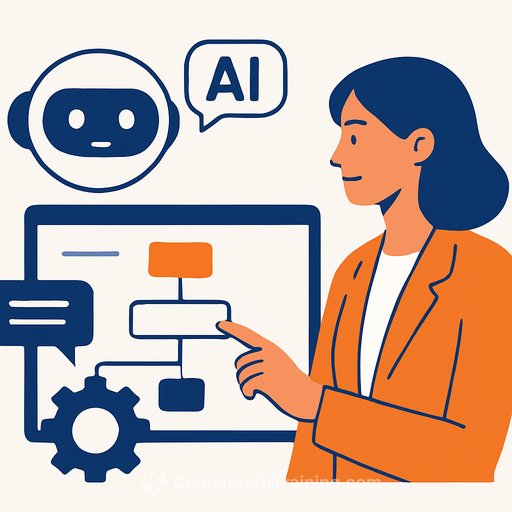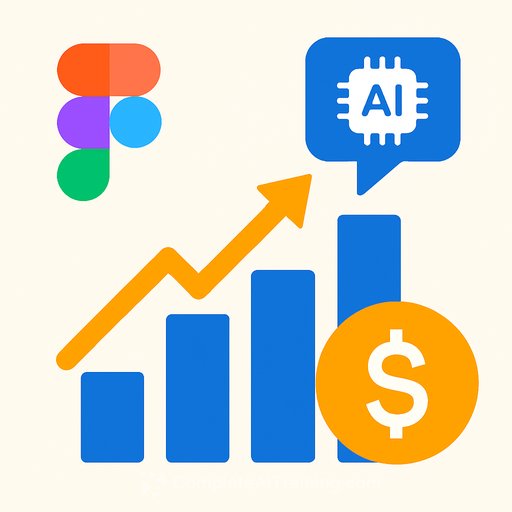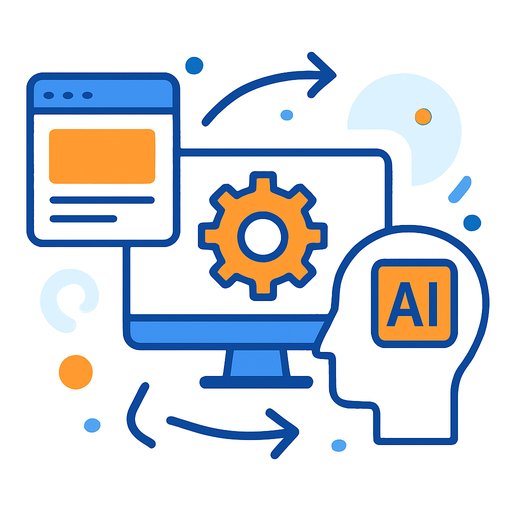Emergn launches Stella AI to advance product management workflow
Emergn has introduced Stella AI, an AI-driven layer inside Praxis that blends coaching, product management tools, and on-demand guidance in one workspace. It supports the full product lifecycle and helps teams move past execution into higher-quality decisions. For product development leaders, this is about better choices, tighter loops, and clearer outcomes.
Why this matters for product development teams
Emergn's Global Intelligent Delusion research reports that 81% of business leaders say AI makes the product manager role easier by boosting efficiency. 76% say AI has increased their visibility and influence. As AI takes on routine tasks, product managers can spend more time on strategic decisions and customer value. Real progress still depends on experience and coaching that sharpens judgment.
What Stella AI adds to Praxis
- Expertise-led system: Uses product context and Emergn's knowledge base to offer targeted recommendations, generate learning modules, and guide users step-by-step through real work.
- Learning in the flow of work: Real-time guidance ties directly to current tasks, so teams don't need to pause for courses or workshops to get unstuck.
- One environment for product work: Strategy, research, execution, and measurement sit together with interactive tools and AI assistance at each step.
What's under the hood
Stella AI is informed by more than sixteen years of Emergn's work with over 500 enterprises and a community of 50,000+ trained professionals. It is grounded in the company's Value, Flow, Quality (VFQ) philosophy, emphasizing customer value, smooth delivery, and consistent standards. With continuous use, the system improves its context awareness and adapts to different teams and goals.
Plans and who each is for
- Praxis Professional: For individual product managers who want AI guidance and workflow support without extra overhead.
- Praxis Team: For small to mid-sized groups that need shared workspaces and real-time coaching to coordinate discovery, delivery, and measurement.
- Praxis Enterprise: For larger organizations with complex portfolios that require analytics, system integrations, and customized onboarding.
How product leaders can put this to work
- Anchor on outcomes: Define measurable product outcomes (adoption, retention, margin, cost-to-serve) and use Stella to trace work items back to those targets.
- Tighten the discovery loop: Feed research notes, problem statements, and opportunity trees into the workspace; use AI prompts to propose experiments and compare solution options.
- Prioritize with evidence: Score backlog items by impact, confidence, and effort; ask Stella to surface assumptions and risks that block progress.
- Ship smaller, learn faster: Break down releases; set success metrics per slice; automate experiment templates so learnings flow into the next iteration.
- Codify decision quality: Capture decision records with alternatives considered, rationale, and trade-offs; use AI to review for bias, missing data, or unclear ownership.
- Instrument everything: Connect analytics to track time-to-learn, time-to-value, and flow efficiency; review signals weekly to adjust bets.
- Coach in context: Replace ad-hoc training with in-the-moment guidance; use short learning modules triggered by the task at hand.
- Set guardrails early: Define data governance, model usage policies, and review checkpoints to keep AI assistance safe, compliant, and useful.
From projects to products
Stella AI supports teams moving from project delivery to product ownership. It improves the way work flows-discovery through measurement-and develops the people doing the work through coaching tied to real tasks. As Alex Adamopoulos, CEO of Emergn, notes, the goal isn't speed alone; it's better decisions that lead to better outcomes.
Where Stella AI can plug into your stack
- Strategy and planning: Clarify problem spaces, synthesize research, and align bets with company goals.
- Backlog and execution: Generate acceptance criteria, test ideas, and surface cross-team dependencies.
- Measurement and learning: Automate experiment design, track leading indicators, and turn insights into updated roadmaps.
- Team development: Deliver targeted coaching and learning moments that build judgment, not just speed.
Buyer notes for Heads of Product and CTOs
- Adoption path: Start with one value stream. Baseline current cycle time and decision latency, then compare after 2-3 sprints.
- Integration: Map connections to your issue tracker, design repo, analytics, and data warehouse. Keep manual work near zero.
- Security and compliance: Confirm data handling, model boundaries, and access controls, especially for customer and roadmap data.
- Change management: Identify product coaches and tech leads as champions. Set clear "working agreements" for AI usage.
If you're evaluating AI for product work, it helps to frame it as decision support, not autopilot. The strongest gains show up where teams reduce toil, test assumptions faster, and improve decision quality over time. For broader context on AI's impact on productivity, see this overview from McKinsey on the economic potential of generative AI.
For teams building AI skills by role, explore focused learning paths here: AI courses for product teams.
Bottom line
Stella AI brings coaching, product workflows, and guidance into one place so teams can think more clearly, move faster with confidence, and ship outcomes that matter. Choose the plan that fits your team size and portfolio, instrument your flow, and let the learning compounding do its work.
Your membership also unlocks:





